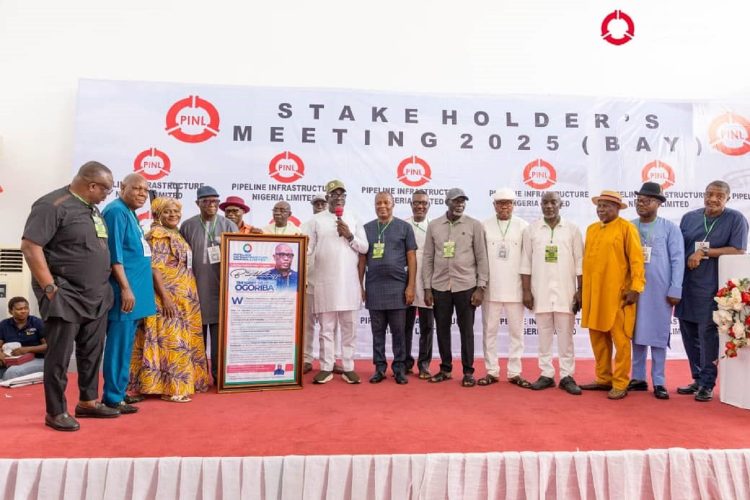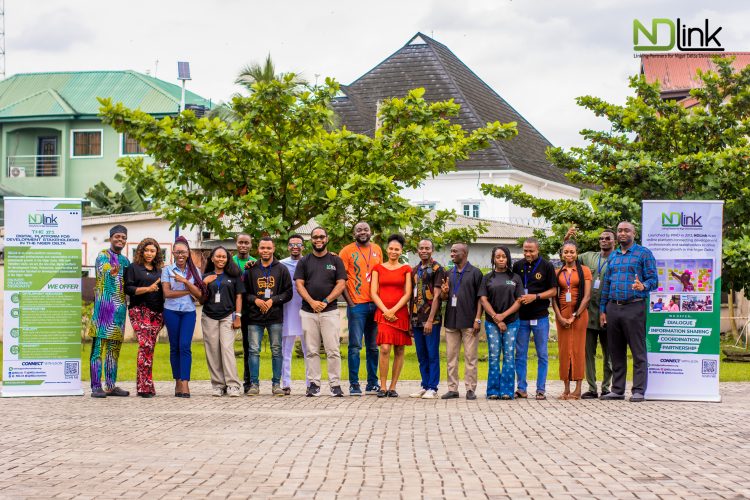
PIND Foundation pay Courtesy Visit to Abia State Governor, discuss Implementation of 30-Year Plan
October 8, 2020
Andrew Perebi Eneyi: What I never told You
October 15, 2020
In 2017, Nigerian youths adopted a campaign against brutality from the Nigerian Police Force. The campaign adopted a mix of online and offline strategies and was popularly known on social media as #EndSARS. The objective was to catalyze mass action against the brutality of the Special Anti-Robbery Squad (SARS), a unit within the Nigerian Police Force set up as a response unit against armed robberies. Over 10,000 Nigerians had signed a petition and submitted to the National Assembly calling for the disbandment of SARS for repeated cases of brutality, harassment, unlawful arrest and detention, and other forms of high handedness against Nigerian youths. Although efforts were made by the National Assembly, the National Human Rights Commission, Nigeria’s Police Chief, even the Vice President of Nigeria, not much seem to have changed.
It is 2020, and Nigerian youths are on the streets again protesting the nefarious activities of SARS. On social media, many young Nigerians recount gory stories of their encounter with the group with some reporting cases of brutality, abduction, extortion, extrajudicial killings, and false imprisonment. There are stories of people locked up in SARS cells for months on end. These stories corroborate a 2016 Amnesty International report where it detailed patterns of human rights violations, extortions, extra-judicial killings, and brutality against Nigerians. A common pattern of the operatives of SARS is their penchant to move around in plain clothes, carrying assault weapons and conducting Gestapo-like operations on supposed suspects.
As sad as the situation is with SARS and its myriad cases of brutality, the issue of brutality and human rights abuses isn’t peculiar to the Nigerian Police Force. In 2015, Amnesty International published a report titled Stars on their Shoulders, Blood on their hands which detailed a series of reported atrocities committed by the Nigerian Military including unlawful detention, extrajudicial killings, and arbitrary arrests. Human rights violations by security forces date back to Nigeria’s history with military dictatorship where security agencies such as the police were established to safeguard military regimes rather than to serve and to protect communities. With the advent of democratic rule in 1999, this mindset remained unchanged. Police Officers and military personnel have been deployed to intimidate peaceful protesters, arrest journalists, and other critics of the government.
A major driver of brutality and abuse of human rights from SARS and other security operatives is the lack of accountability for their actions. In many situations, security operatives engaged in human rights violations hardly face any kind of accountability. They are mostly shielded by the Police hierarchy and victims are afraid to speak out for fear of being targeted again. An Amnesty International Report recently stated that the Nigerian Government has failed to prosecute a single SARS operative since the National Assembly passed the Anti-Torture Act of 2017.
Secondly, the enabling legislation for the Nigerian Police Force, i.e. the Police Act is obsolete and contains vague provisions that enable human rights violations. The Act which was initially enacted in 1943 contains an array of provisions that leave broad discretionary powers in the hands of Police officers. These powers enable police officers to search without a warrant, to arrest on mere suspicion of someone having committed or about to commit an offense, etc. This is the crux of many allegations against SARS as victims have reported their phones being seized and searched without a warrant, of being arrested for spotting tattoos or wearing dreadlocks. Last month, President Buhari signed into law, the New Police Act to provide a more effective and well organized Police Force, driven by transparency and accountability in its operations. However, a major criticism is that the new Act retains some of the arbitrary and discretionary powers that enable abuse of human rights.
There are several remedies available to victims of human rights abuse IN Nigeria. Firstly, they can enforce their rights in court or they can petition, the National Human Rights Commission (NHRC), a commission set up to assist victims of rights violations seek remedies. Unfortunately, in Nigeria, the Justice system is slow and expensive. Many victims of police brutality cannot afford Lawyers to enforce their rights through the long and arduous process in courts. Sometimes, cases can drag on for years, and even when damages are awarded, the Police seldom pay. Although the legal aid council provides free legal aid to disadvantaged citizens, lawyers from the council are often overburdened and the council is poorly funded. A notable criticism of the NHRC is that its powers are limited making recommendations which the government can choose to implement or not.
The Nigerian Government must listen to the millions of voices calling for Police reform and must see it as an opportunity to transform relations between the Police and the communities. Although the Inspector General of Police gave an address on Sunday, October 11, disbanding the unit, the protests have continued especially in the light of similar pronouncements that have yielded little. All over the Nigerian social media space, there are stories and images of Police Officers utilizing force in an attempt to quell the protests. As the protests enter its third day across Nigeria, the government must understand that the use of coercion as a tactic will not address the issue. President Buhari should accede to the demand of the protesters, which include:
- The immediate release of all arrested protesters
- Justice for all deceased victims of police brutality and appropriate compensation for their families
- Setting up an independent body to oversee the investigations and prosecution of all reports of Police misconduct
- In line with the new Police Act, psychological evaluation and retraining (to be confirmed by an independent body) of all disbanded SARS officers before they can be redeployed
- Increase the salaries of Police Officers so that they are adequately compensated for protecting the lives and property of citizens
Lastly, it is important to recognize that police brutality is a consequence of the failing Justice system. Efforts must be made to reform the system. Only then can the rights of citizens be truly guaranteed.
________________
Nkasi Wodu a Lawyer, peacebuilding practitioner, and development expert writes from Port Harcourt, Nigeria.









